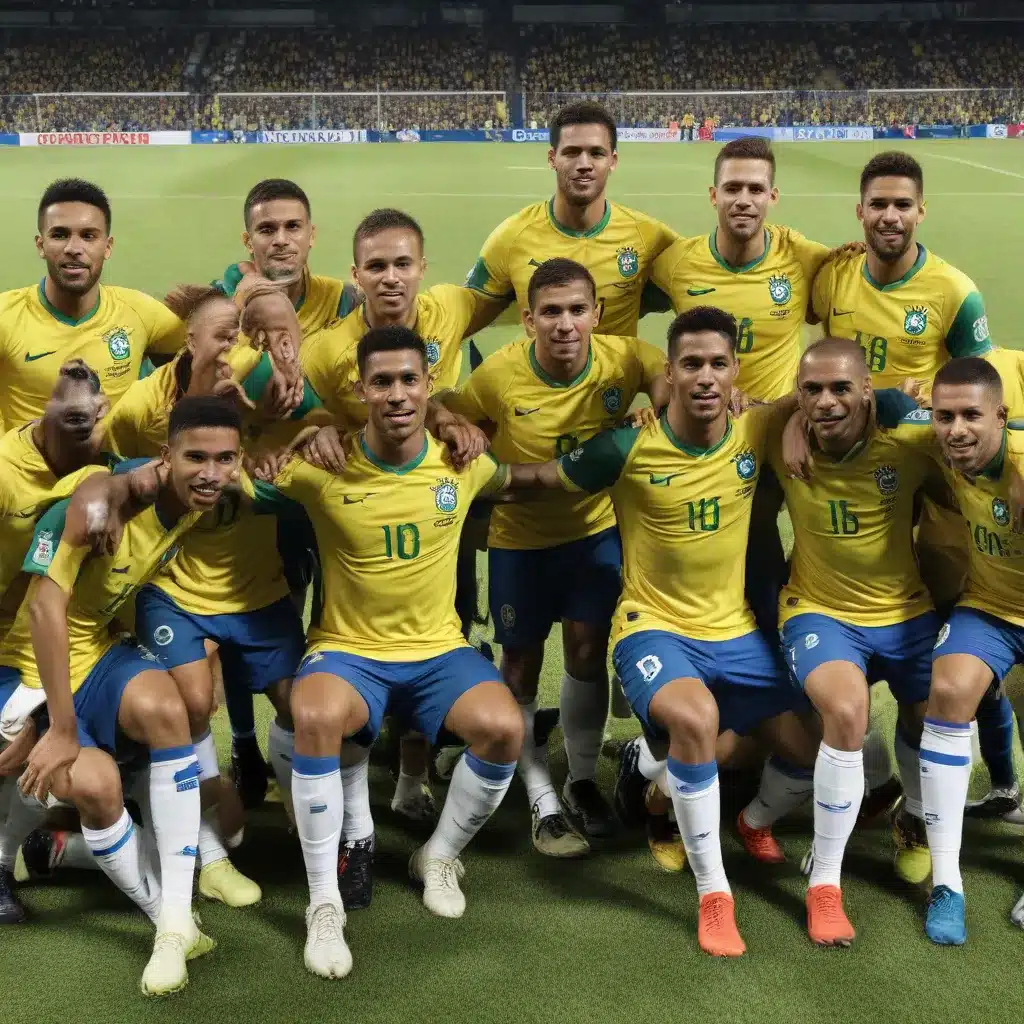
Brazilian Club Ownership Structures and CSR
Football clubs in Brazil operate under diverse ownership models, each with its own implications for corporate social responsibility (CSR) initiatives and their impact on team tactics.
Public-Owned Clubs
Many of Brazil’s iconic clubs, such as Flamengo, Corinthians, and São Paulo, are publicly owned by their supporters through membership programs. These clubs often have strong community roots and leverage their CSR efforts to strengthen fan engagement and local development. Their tactics may emphasize a possession-based, attacking style to thrill the passionate fanbase.
Private-Owned Clubs
An increasing number of Brazilian clubs, including giants like Atlético Mineiro and Fluminense, are transitioning to private ownership by wealthy investors or corporations. While this can provide significant resources for youth academies and infrastructure, the priorities of these private owners may not always align with the social responsibilities expected by supporters. Privately-owned clubs may adopt more pragmatic, counter-attacking tactics to achieve results.
Corporate Social Responsibility Initiatives
Brazilian football clubs have embraced a wide range of CSR programs, each with the potential to influence their on-field tactics and player development.
Community Development Programs
Many clubs invest heavily in community outreach, establishing sports and education initiatives in underprivileged neighbourhoods. These efforts can uncover talented youngsters who are then integrated into the club’s youth academy, shaping the team’s long-term tactical identity.
Youth Development Academies
Renowned for producing world-class talent, Brazilian clubs place immense emphasis on their youth academies. These programs not only develop technical and tactical skills, but also instil core values of teamwork, discipline, and social responsibility. Graduates from these academies often form the backbone of the first team, ensuring the club’s playing style remains true to its roots.
Environmental Sustainability Projects
Increasingly, Brazilian clubs are spearheading initiatives to reduce their carbon footprint and promote environmental awareness among their supporters. This commitment to sustainability can influence tactical decisions, such as prioritizing possession and patient build-up play to conserve energy, or deploying a high-pressing style to win the ball back quickly and limit opponents’ time on the ball.
Impact on Team Tactics
The diverse CSR initiatives undertaken by Brazilian clubs have a tangible influence on the tactical approaches adopted by their first teams.
Possession-Based Style
Clubs that have strong community ties and youth development programs often gravitate towards a possession-based, attacking style of play. This not only thrills the fans but also aligns with the technical and tactical emphasis of their academies, where young players are trained to dominate the ball and break down opponents through intricate passing.
Counter-Attacking Tactics
Privately-owned clubs with a greater focus on results may opt for a more pragmatic, counter-attacking approach. These teams rely on a solid defensive structure and the pace and clinical finishing of their forwards to punish opponents on the break. This tactical approach may not resonate as strongly with supporters but can deliver success in a results-driven environment.
Set-Piece Strategies
Clubs that invest heavily in their youth academies often develop a strong aerial presence and set-piece prowess. Talented youngsters are meticulously trained in the nuances of dead-ball situations, whether it’s perfectly timed runs for headers or the precise delivery of free-kicks and corners. This attention to detail can prove pivotal in tight matches, where set pieces can make the difference.
Player Recruitment and Development
The CSR initiatives of Brazilian clubs have a profound impact on their player recruitment and development strategies, which in turn shape the team’s tactical identity.
Youth Academy Integration
Clubs that prioritize their youth academies often integrate academy graduates seamlessly into the first-team setup. This ensures a consistent playing style and allows young players to thrive in a familiar environment, transitioning smoothly from the youth to the senior level.
Socioeconomic Background Considerations
Many Brazilian clubs actively scout players from underprivileged backgrounds, recognizing the transformative power of football in their lives. These players often bring a unique blend of grit, determination, and creativity to the team, influencing the tactical approach and adding an element of unpredictability.
Tactical Adaptability
Regardless of their socioeconomic background, players developed within Brazilian clubs’ CSR-focused youth academies are trained to be tactically versatile. They are adept at adapting to different systems and roles, enabling the team to adjust its tactics based on the opponent or the game situation.
Stakeholder Perspectives
The impact of Brazilian clubs’ CSR initiatives on their team tactics is viewed through the lens of various stakeholders, each with their own priorities and expectations.
Club Management Views
Club executives understand the importance of CSR in building the club’s brand and reputation, attracting talent, and engaging with the local community. They may prioritize tactics that align with the club’s social responsibilities, even if they don’t always maximize short-term results.
Supporter Attitudes
Passionate Brazilian football supporters often place a high value on the social impact of their club’s CSR efforts, alongside their team’s on-field performance. They appreciate tactics that reflect the club’s identity and community roots, even if they don’t always produce the most efficient or pragmatic results.
Regulatory and Policy Landscape
The Brazilian football ecosystem is shaped by a complex regulatory and policy framework that influences the CSR initiatives of clubs and their impact on team tactics.
Brazilian Football Federation Guidelines
The Brazilian Football Confederation (CBF) has implemented guidelines and regulations that encourage clubs to engage in CSR programs, particularly in areas of grassroots development and sustainable infrastructure. These policies can incentivize clubs to prioritize tactics that promote youth integration and environmental responsibility.
Government Incentives and Legislation
The Brazilian government offers various tax benefits and partnership models to incentivize clubs’ CSR initiatives. This can spur investment in community programs, youth academies, and sustainable stadium renovations, all of which can influence the club’s tactical approach and player development.
The intricate relationship between Brazilian football clubs’ corporate social responsibility initiatives and their team tactics is a fascinating and multifaceted topic. By understanding the nuances of club ownership structures, CSR programs, and the perspectives of key stakeholders, we can gain valuable insights into the evolving landscape of the beautiful game in Brazil.

